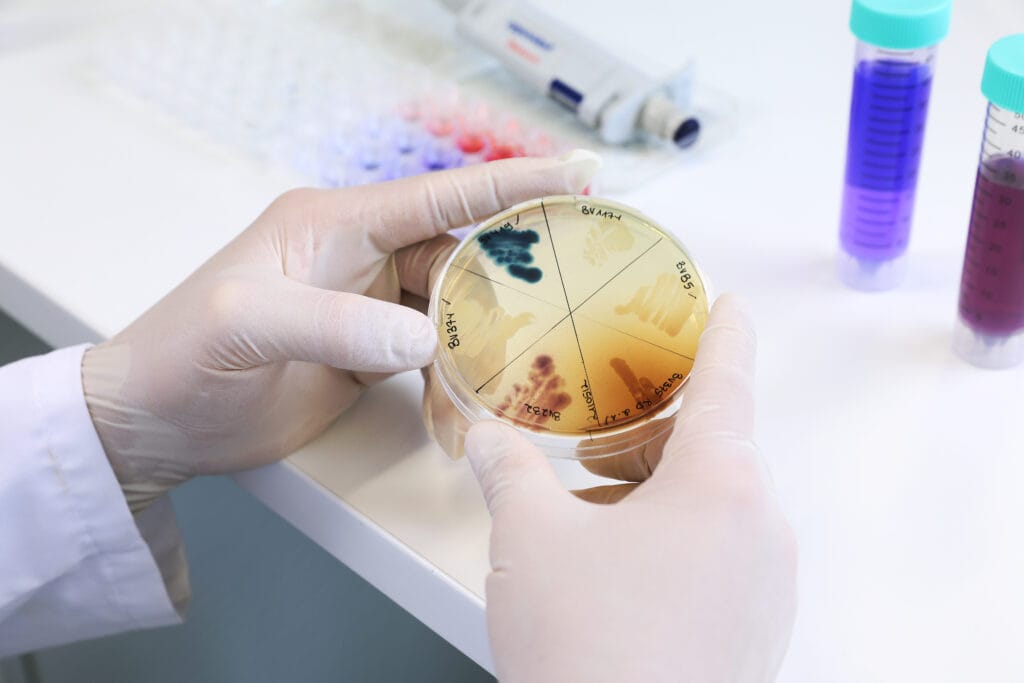News
November 27, 2018
Fresh funds to fuel the fight against drug-resistant bacteria

BioVersys together with BioSystems Technology and Voxcan announced funding – € 840,000 over a 3-year period – by Eurostars for IMPACT2, a new translational AMR platform that will expedite the development of novel new medicines in the fight against antimicrobial resistance.
There is an urgent need for new treatments against untreatable infections caused by drug-resistant bacteria such as K. pneumoniae, A. baumannii, P. aeruginosa, E. coli and others. IMPACT2 aims to revolutionize antimicrobial drug discovery by offering a seamless platform for effective candidate screening and target validation. BioVersys CEO and co-founder Marc Gitzinger walks us through the benefits of the platform and shares his startup journey with us.
BioVersys started 2008 as an ETH spin-off. What milestones did you achieve in the ten years and how did the company evolve?
BioVersys was initially in stealth mode and received a Seed round investment in early 2011 and has raised to date CHF 22 million. We have since developed our internal technology platform for the discovery of new small molecules to overcome multidrug-resistant superbugs. We have transformed into a pipeline R&D company with three programs coming from our technology platform, one of which is partnered since 2014 with GlaxoSmithKline.
BioVersys is developing as a strong player in the identification of new antibacterial drugs and is further evolving its pipeline. We are now in the process of raising a Series B financing round and seek to commence 1st Human clinical trials in 2H 2019 and transform into a clinical stage biotech company.
You just announced getting funding from Eurostars to establish IMPACT2, congratulations! Tell us about why you think there is a need for such a platform and the benefits it has.
Antibacterial drug discovery for truly novel approaches lacks a lot of tools and technologies to help identify and evaluate how novel acting molecules can become powerful candidates. Since we needed to develop a lot of these technologies ourselves or with partners, we now started to build a true strength in this field. With the Eurostars funding, the three project partners will establish a commercially usable and industry relevant technology platform to support other antibacterial drug discovery and development companies expedite their antibiotic research. Bacterial infections caused by resistant bacteria are a huge health problem and we are pleased that with the Eurostars support we can broaden the scope of our capabilities and offer our technologies to all companies working on this important topic. The Eurostars project is, however, independent of our own drug development programs.
IMPACT2 was developed by BioVersys in cooperation with BioSystems Technology and Voxcan. Why did you partner up, what does each of these companies add to the fold?
BioVersys’ proprietary technologies allow us to manipulate multi-drug and even PAN-resistant clinical isolates and we have identified ways in which we can test if certain genes are vital for bacteria survival. This allows for the identification of compounds that can interfere with processes that control the pathogenesis and survival of bacteria. This very same technology is suitable for introducing specific labels in bacterial strains, importantly we can do this with clinical isolates from the hospital, so we know if a compound is active on such a strain in vitro this is relevant for human bacterial disease.
We chose our partners as we knew them as reliable and leading partners in their field, having worked with them on our own drug development programs.
The Galleria moth larvae offered by BioSystems Technologies is a translational model mimicking “in vivo” conditions and they offer a specially bred larvae providing reproducible results – something we have already seen to be successful in our own A. baumannii project.
Voxcan brings their unique imaging technologies. They can develop animal models that when combined with the bio-luminescent tagged clinical bacteria strains from BioVersys, we can produce a lot of very useful real-time infection data that you do not get with traditional animal models and this also results in the use of less animals.
So together the three companies are in the unique position to offer a novel platform to the AMR community in a really short time, that has the potential to accelerate antibacterial drug discovery more cost-effectively and more ethically.
How will the funds you got from Eurostars be used?
We are looking to develop our technologies further, this will allow us to target a broader range of bacterial pathogens and facilitate the discovery of new bacterial targets and compounds. The funds will be used to establish the complete IMPACT2 platform for antibacterial drug discovery and commercial operation. We also very much want to see the reduction in the use of animals from an ethics perspective, so combining the larvae, the imaging and bacteria labeling technologies is a unique concept and great opportunity to reduce the number of mouse studies needed in adherence to the 3R (reduction, replacement and refinement) goal in Europe, while enabling improved evaluation of novel antibacterial therapies.
You passed Venture Kick stage 3 back in 2008. How did this experience help BioVersys get to where it is today?
Venture Kick was really the Kickstarter for our company. It was pushing us to actually incorporate a company and transform a very early idea into a true drug discovery program. This has now resulted in a company with a very strong pipeline to help answer the global health threat of antimicrobial resistance.
In 2016, you were part of the Venture Leaders team visiting China. What benefits do you see for a Swiss startup joining one of these international programs?
We still benefit from this trip to China and the contacts that we established. The Chinese market is very important and with the significant changes that the Chinese FDA (food and drug administration) has undergone and continues to undergo, China has also become an important player for biotech companies.